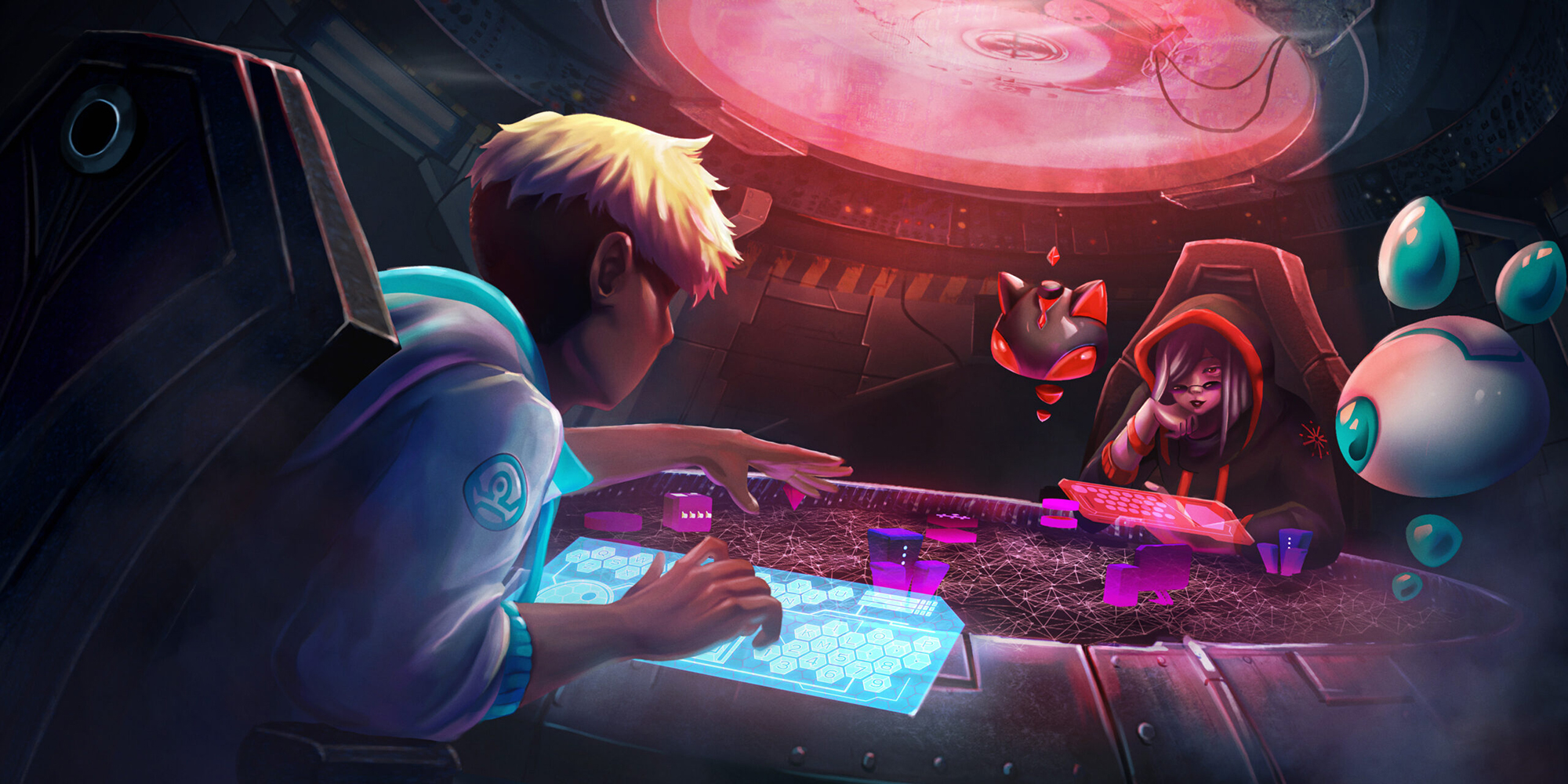Unity has carved a niche in serious game development, offering tools and features catering to diverse business needs. Within the corporate world, Unity serious games are revolutionizing traditional practices. Unity provides a platform that seamlessly blends realism with interactivity, from employee training modules to intricate product simulations. Its adaptability and efficiency have made it an indispensable asset for businesses aiming to leverage the power of simulations for tangible results.
As more companies recognize the potential of serious games, Unity's prominence in this domain continues to grow. This shift isn't merely about adopting new technology; it's about harnessing a tool to redefine business outcomes. In this blog post, we’ll delve deep into the most significant reasons why businesses are opting for Unity for their serious game development needs, highlighting the transformative impact it can have across various sectors.
Advancements of Serious Games in the Corporate World

Serious games have undergone a significant transformation over the years, especially in business. Their application has expanded beyond mere entertainment, becoming a powerful tool for various corporate functions. Here's a brief overview of their evolution:
1. Origins. Serious games trace their roots back to military simulations and educational tools. Over time, businesses recognized their potential for training and began to adopt them for internal purposes.
2. Technological advancements. With the rise of digital technology and sophisticated game engines, serious games have become more immersive and realistic. This allowed for more intricate simulations, making them ideal for complex training scenarios.
3. Adoption in corporate training. Serious games for corporate training have seen a surge in recent years. Companies are leveraging them to train employees in soft skills, technical knowledge, and even crisis management.
4. Diverse applications. Beyond training, businesses are using serious games for product prototyping, customer engagement, and even marketing. Their versatility has made them a staple in various corporate sectors.
5. Future prospects. As technology continues to advance, the scope and capabilities of serious games are expected to grow. Augmented reality and virtual reality are set to play a pivotal role in the next phase of their evolution.
To sum up, serious games have come a long way from their initial applications. Their growth in the business sector is a testament to their effectiveness and adaptability. As they continue to evolve, they are poised to become an even more integral part of corporate strategies.
Unity's Role in Shaping the Development of Serious Games
Unity has significantly influenced the development and growth of serious games. Its platform offers developers the tools and flexibility needed to create tailored, immersive experiences for corporate applications. Here's a breakdown of Unity's impact:
- Innovative tools. Unity's comprehensive toolset allows developers to design detailed and realistic simulations, enhancing the quality and effectiveness of serious games.
- Accessibility. Unity's user-friendly interface, coupled with extensive online resources, has made game development more approachable, leading to an increase in developers specializing in serious games.
- Unity metaverse. Unity's vision for a metaverse highlights its commitment to innovation. This interconnected virtual space offers potential for the next generation of serious games, emphasizing immersive environments for training and collaboration.
- Community support. Unity's active developer community ensures continuous innovation and knowledge exchange, fostering best practices and advancements in serious game development.
Thus, Unity's platform and its features have been instrumental in shaping the serious game industry, driving both its current state and future potential.
The Ubiquity of Unity in Serious Game Creation
Unity's rise in the gaming world is well-documented, but its dominance extends beyond traditional gaming. Specifically, Unity for serious games has emerged as a game-changer, reshaping how industries approach training, education, and simulation.
The platform's versatility, combined with its user-friendly interface, has made it a favorite among developers aiming to create realistic, engaging, and educational experiences. Businesses, educational institutions, and even government agencies are leveraging Unity to craft simulations that offer hands-on learning experiences, bridging the gap between theory and practice.
The platform's ability to integrate with various technologies, including VR and AR, further amplifies its potential, allowing for immersive environments that mimic real-world scenarios. As industries continue to recognize the value of interactive learning, Unity's role in serious game development is set to grow even more prominent, solidifying its position as the go-to platform for serious game creation.
Top 5 Reasons to Choose Unity for Serious Games and Simulations
Harnessing the power of Unity for serious games prompts the question: how will games change the way we learn? Delving into this transformative platform reveals five compelling reasons to make Unity your top choice for educational simulations.
1. Flexibility and Compatibility Across Platforms
Unity's platform-agnostic approach ensures that games and simulations are accessible on multiple devices, from PCs to mobiles and VR/AR setups. For businesses, this universal compatibility is invaluable. It guarantees that all employees can access training tools uniformly, irrespective of their tech preferences. Unity's ability to deploy on various platforms without significant rework means cost savings and efficiency. This cross-platform nature ensures businesses can cater to a diverse workforce, ensuring everyone gets the same training experience.
2. Potent Imagery and Engaging Environments
With Unity, developers can craft visually stunning and immersive environments. The platform's emphasis on high-quality graphics ensures users remain captivated, enhancing the effectiveness of training sessions. Real-world scenarios can be simulated with precision, preparing employees for actual challenges. In a business context, the difference between a memorable training module and a forgettable one often lies in its visual and interactive quality. Unity's commitment to visual fidelity offers businesses a distinct advantage.
3. Comprehensive Asset Marketplace and Ecosystem
The Unity Asset Store, a treasure trove of tools, scripts, and 3D models, accelerates the development cycle. Businesses benefit from reduced costs and consistent quality standards. The availability of diverse assets allows for rapid adaptation, ensuring training tools stay current. Unity provides enterprises with a comprehensive ecosystem, streamlining the serious game creation process. This vast marketplace is a testament to Unity's commitment to providing developers with everything they need.
4. Strong Scripting and Dynamic Interaction
Interactive experiences are at the heart of Unity's design philosophy. Beyond visual appeal, Unity-powered games engage users through intricate scripting. Active participation in training modules leads to enhanced retention and understanding. Complex scenarios challenge users, transforming them from mere observers to participants. For businesses, this engagement is invaluable. Unity's scripting capabilities, combined with its interactive design tools, make it an indispensable platform for creating impactful training tools.
5. Solid Community and Assistance
Along with its technical prowess, Unity is backed by a vibrant global community. This network offers invaluable resources, from troubleshooting guides to innovative best practices. Businesses can tap into this collective wisdom, ensuring their training tools remain cutting-edge. Challenges encountered during development are swiftly addressed, thanks to the community's collaborative spirit. Unity's strong community foundation provides businesses with a safety net, ensuring continuous support and innovation throughout the development process.
Business Uses of Unity-Based Serious Games and Simulations
Unity-based serious games and simulations are revolutionizing the corporate paradigm. As businesses seek innovative solutions for training, product testing, and customer engagement, Unity emerges as the go-to platform, offering unparalleled realism and interactivity.
1. Staff Education and Growth
Unity-based serious games and simulations have revolutionized the approach to staff education and growth. Traditional training methods often fall short in engagement and retention. Unity addresses this gap, offering interactive, realistic scenarios that captivate employees. This immersive experience ensures that learning is not just theoretical but also practical. Employees can practice skills in a controlled environment, leading to better understanding and application in real-world situations. As industries evolve, such training becomes indispensable for businesses aiming for excellence.
2. Wellness and Security Education
In the context of wellness and security education, Unity's serious games and simulations offer a fresh perspective. Instead of relying on static presentations, businesses can immerse employees in interactive scenarios that highlight potential hazards and preventive measures. Through firsthand experiences in these virtual settings, staff grasp the gravity of their choices, leading to more informed decisions in real-life situations. Unity's dynamic approach elevates traditional training, ensuring a proactive, safety-conscious workforce.
3. Product Drafting and Evaluation
Product development takes a leap forward with Unity-based serious games and simulations. Unity offers a dynamic platform where businesses can craft interactive prototypes, allowing stakeholders to experience and critique products in real-time. This hands-on evaluation method provides invaluable insights, highlighting potential improvements before finalizing designs. The result? Faster iterations, cost savings, and products that resonate more deeply with target audiences. Unity's simulations ensure that every product launch is informed, refined, and market-ready.
4. Sales Promotion
Unity-based simulations are redefining sales promotion strategies. By creating interactive product demos and virtual showrooms, businesses can captivate potential customers in unprecedented ways. Unity allows for the visualization of products in real-world contexts, helping customers understand value propositions more tangibly.
This immersive experience can significantly enhance engagement, driving sales and fostering brand loyalty. Moreover, virtual promotions can reach global audiences, breaking geographical barriers. With Unity's serious games and simulations, the sales pitch becomes an interactive journey, making every promotion more compelling.
5. Client Interaction and Brand Promotion
Unity's serious games and simulations are reshaping client interaction and brand promotion. Through immersive virtual experiences, businesses can showcase products, services, or brand stories in captivating environments. Clients can engage directly, exploring features of narratives at their own pace.
This personalized interaction deepens brand connection, fostering trust and loyalty. Moreover, Unity's platform facilitates real-time feedback, allowing businesses to tailor experiences based on client preferences. In the competitive market landscape, Unity offers a unique edge, turning promotions into memorable, interactive adventures.
Program-Ace Presents: Haiku's Cybersecurity Revolution

Haiku isn't just another cybersecurity training game but an immersive experience designed to equip users with essential online security skills. Program-Ace's developers have refined its interface, ensuring intuitive navigation, enhancing the game's performance as well as ensuring swift loading times.
Tackling the Challenges of Developing Serious Games and Simulations with Unity
Navigating the intricacies of serious game development with Unity presents a myriad of challenges. As businesses and educators increasingly turn to this platform for creating immersive learning experiences, understanding these hurdles becomes paramount:
Resource constraints. In-house serious game development can be resource-intensive, putting new demands and incurring financial costs. Institutional challenges. Barriers such as administrative challenges, limited selection, and high costs of serious games can deter companies from fully embracing this methodology.
Communication barriers. Educators must effectively convey complex content to a multidisciplinary team, ensuring that learning and game objectives are seamlessly integrated.
Complexity of realism. Achieving high levels of realism in simulations requires intricate detailing. While powerful, Unity demands a deep understanding of its tools to replicate real-world scenarios accurately.
Optimization for various platforms. Unity's cross-platform capability is a strength, but it also poses challenges. Developers must ensure games are optimized for performance across different devices, from mobiles to high-end VR setups.
Integration of external tools. While Unity offers a plethora of built-in tools, integrating external tools or plugins can sometimes lead to compatibility issues, demanding additional troubleshooting.
Balancing interactivity and performance. Creating highly interactive scenarios can strain performance. Developers must strike a balance to ensure smooth gameplay without compromising on engagement.
Continuous updates and adaptation. Unity frequently updates its engine. While this brings new features, developers must adapt, ensuring their games remain compatible with the latest versions.
Multidisciplinary collaboration. Serious game development demands a collaborative approach involving educators, game designers, developers, and more. The educator, often the subject matter expert, plays a pivotal role across all stages of serious game development.
While Unity offers a robust platform for serious game development, developers and educators need to be cognizant of these challenges. By addressing them head-on, they can harness the full potential of Unity to create impactful and engaging learning experiences.
Why Choose Program-Ace for Serious Game Development in Unity
Program-Ace is a premier custom software development company specializing in Unity-based serious game development. Our team's expertise in Unity ensures that we deliver immersive, interactive, and educationally impactful games tailored to your specific needs.
With a proven track record of successful projects and satisfied clients, Program-Ace is your go-to partner for serious games solutions. If you are looking to harness the power of Unity for serious games, don't hesitate to contact us. Our dedicated professionals are ready to transform your vision into a gaming reality.























